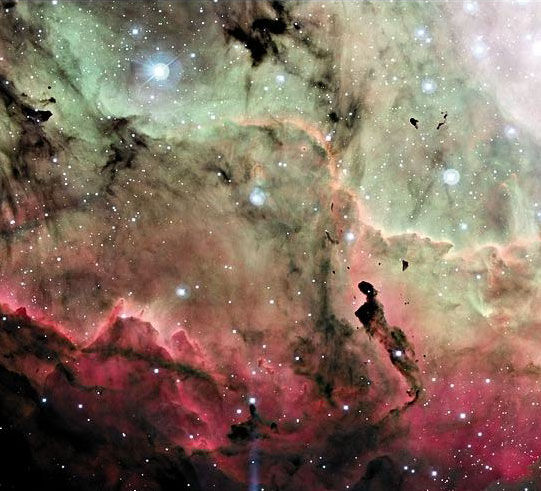Explanation: Stars are battling gas and dust in the Lagoon Nebula but the photographers are winning. Also known as M8, this photogenic nebula is visible even without binoculars towards the constellation of Sagittarius. The energetic processes of star formation create not only the colors but the chaos. The red-glowing gas results from high-energy starlight striking interstellar hydrogen gas. The dark dust filaments that lace M8 were created in the atmospheres of cool giant stars and in the debris from supernovae explosions. The speculator portion of the Lagoon Nebula taken by the CFHT was created from light emitted by hydrogen (shown in red) and light emitted by oxygen (shown in green). The light from M8 we see today left about 5000 years ago. Light takes about 50 years to cross this section of M8.
1999 2000 2001 2002 2003 2004 2005 2006 2007 2008 2009 2010 2011 2012 2013 2014 2015 2016 2017 2018 2019 2020 2021 2022 2023 2024 2025 |
Yanvar' Fevral' Mart Aprel' Mai Iyun' Iyul' Avgust Sentyabr' Oktyabr' Noyabr' Dekabr' |
NASA Web Site Statements, Warnings, and Disclaimers
NASA Official: Jay Norris. Specific rights apply.
A service of: LHEA at NASA / GSFC
& Michigan Tech. U.
|
Publikacii s klyuchevymi slovami:
M 8 - Lagoon Nebula - Tumannost' Laguna
Publikacii so slovami: M 8 - Lagoon Nebula - Tumannost' Laguna | |
Sm. takzhe:
Vse publikacii na tu zhe temu >> | |
